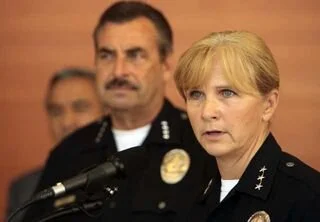In the storm of protests after the murder of George Floyd, many say that having more African American and Latino officers will reduce police violence and force used against people of color. Will it?
Read MorePittsburgh has been named America’s most livable city many times over by magazines and ratings guides. And it is pretty great. At least, for people like me. What is it like for African American residents? And why are their experiences with our police so different than mine?
Our guest is the Reverend Dr. John Welch, former Vice President and Dean of the Pittsburgh Theological Seminary. He tells us what it’s like to be in a thriving American city, as a black man, especially with regard to policing.
Read MoreWith incidents of serious injuries and deaths at the hands of police, cities face the costs of settlements and jury verdicts. Some of these cases mean millions of dollars paid. How do cities pay for this? What does it mean to city budgets? And how is it that someone is making money off of this?
Read MoreThe death of George Floyd in Minneapolis set off outrage, weeks of demonstrations across the country and around the world, and has started discussion and legislative action at every level of government. On this episode, we’ll ask an African American law enforcement leader what policing has been like – and where it goes now.
Read MoreCan you believe it? Our first episode was published on this date in 2016! 117 interviews and countless bonus episodes later, producer Josh Raulerson joins Dave to mark the occasion with a look back at four years of Criminal Injustice.
Read MoreEvery year, more than 600,000 Americans leave our jails and prisons. Many are on parole. Others people are put on probation instead of going to prison. The job of supervising all of them falls to parole and probation officers.
Read MoreSan Quentin Prison in California has always had a reputation as one of the toughest, most violent prisons anywhere. But twelve years ago, the prison’s in-house newspaper, produced by inmates, began to change things. What can journalism do for incarcerated people, and for the prisons in which they serve their sentences? And what about the impact on people outside of prison?
Read MoreEvery year, courts hand out sentences of life without the possibility of parole to people convicted of serious crimes. Our guest today was one of those people, and he’ll tell us what that was like – and, with his sentence commuted, what his life is like on the outside, after 43 years.
Read MoreWhen HIV appeared in the U.S., it was a death sentence and a source of real fear. Now, with treatment, people living with the virus can live long and full lives. So why do laws still criminalize some actions of people living with HIV?
Read MorePolice suicides are on the rise. Just how bad is the problem? Why is it happening, and what can be done to stop it?
Read MoreYears before Ferguson, the well-publicized beating of a black teen by three white police officers exposed a deep racial divide in Pittsburghers' perceptions of, and experiences with, law enforcement. On its tenth anniversary, David Harris explores the Jordan Miles case and its aftermath in a new book -- A City Divided: Race, Fear and the Law in Police Confrontations.
In this special episode, Dave sits down with producer Josh Raulerson to discuss what the incident can teach us about race, human perception, and the militarization of policing.
Read MoreThe National Initiative for Building Community Trust and Justice began just a year after Ferguson. The Initiative aimed to improve criminal justice outcomes and police-community relations in six cities. Now the results are in. Did it work? And what can we learn as we look for ways to improve our whole system?
Read MoreWe often hear that police work requires split-second responses to keep officers and the public safe. But this might be less true than we think. Can we build a better cop, by training them to slow things down?
Read MoreMany people make their social media posts public. Everyone can see them, like a signed billboard visible anywhere in the world. So, what should we think when we learn that *some* police officers, in some departments, have been posting racist messages or memes endorsing violence, visible to anyone on the Internet?
Read MoreWith every police shooting of an unarmed civilian, we hear calls for civilian oversight of police. But just creating an oversight agency is no magic bullet. What does a civilian review board need to succeed? What’s the evidence on the success of civilian oversight?
Read MoreWe try to solve the problem of mass incarceration by eliminating mandatory sentences, or by getting rid of cash bail. But what about a better method of providing criminal defense services? Could this cut prison and jail populations, AND secure public safety? There’s a way to do this: use a holistic model for criminal defense services.
Read MoreIn the U.S., our prisons are full of people raised in the poorest neighborhoods, who only had access to the worst schools. So what happens when they can enter a first-class college program – inside prison?
Read MoreThe U.S. uses solitary confinement like no other country in the world, and nowhere more than the Supermax prison in Colorado. Solitary damages prisoners' minds, and the U.N. has called it torture. What happens when prisoners leave Supermax?
Keegan Hamilton is a senior reporter at Vice News.
Read MoreThe law makes heroin, cocaine, and meth illegal according to their defined chemical structures. But what about drugs made from synthetic compounds, which can be changed with a tiny tweak in a clandestine lab? Can the law just say "close enough?"
Read MoreKoch Industries and Charles and David Koch – names that are synonymous with right-wing political causes and deregulation of industry. So why is Koch joining with the left to give former inmates second chances?
Read More



















